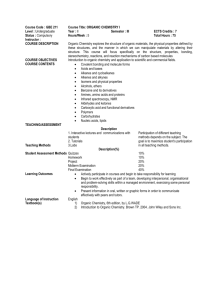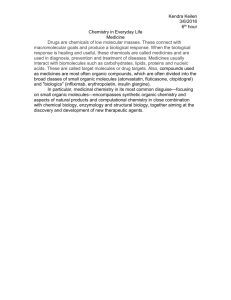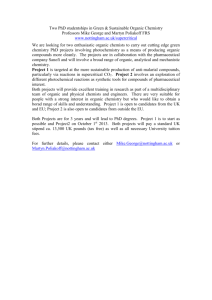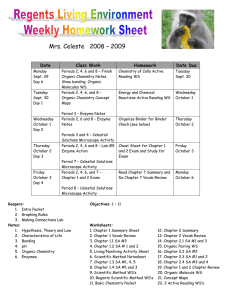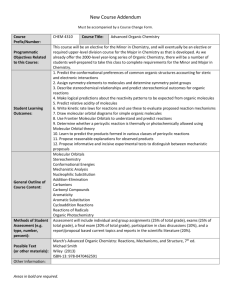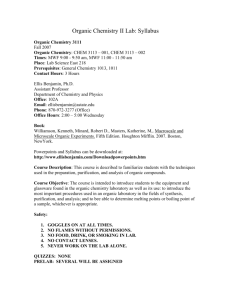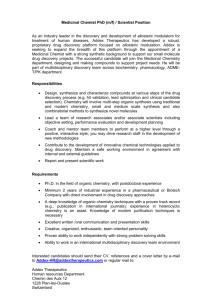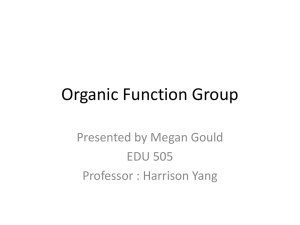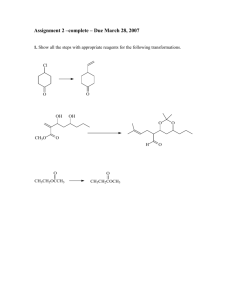Organic preparation for sustainable development-a course
advertisement
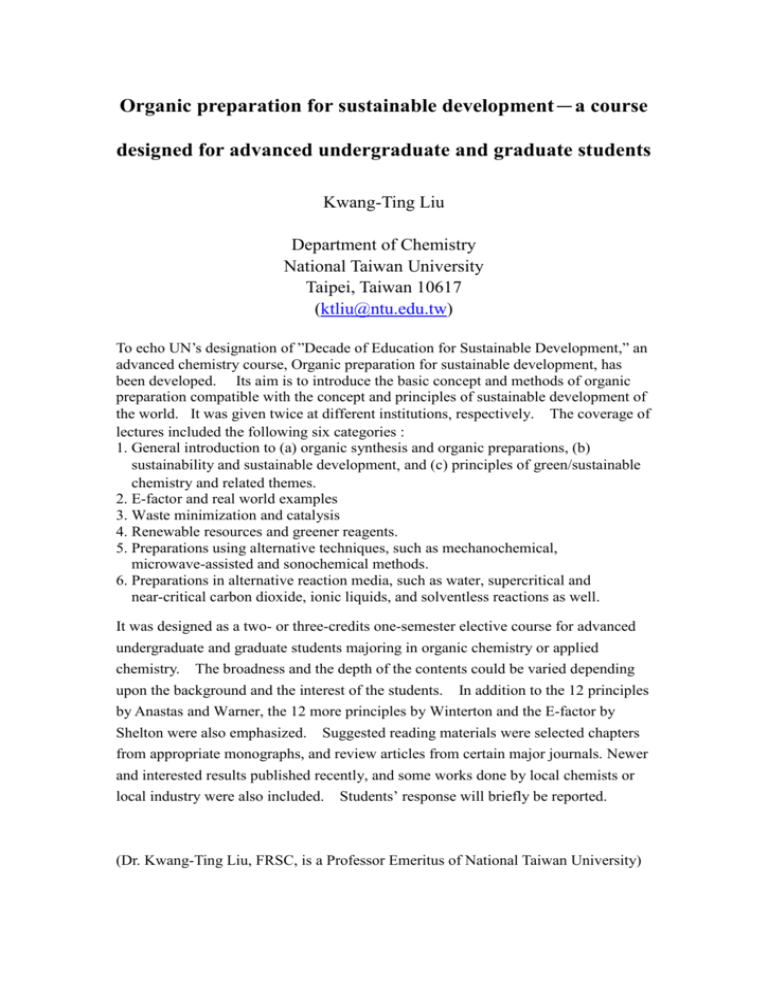
Organic preparation for sustainable development-a course designed for advanced undergraduate and graduate students Kwang-Ting Liu Department of Chemistry National Taiwan University Taipei, Taiwan 10617 (ktliu@ntu.edu.tw) To echo UN’s designation of ”Decade of Education for Sustainable Development,” an advanced chemistry course, Organic preparation for sustainable development, has been developed. Its aim is to introduce the basic concept and methods of organic preparation compatible with the concept and principles of sustainable development of the world. It was given twice at different institutions, respectively. The coverage of lectures included the following six categories : 1. General introduction to (a) organic synthesis and organic preparations, (b) sustainability and sustainable development, and (c) principles of green/sustainable chemistry and related themes. 2. E-factor and real world examples 3. Waste minimization and catalysis 4. Renewable resources and greener reagents. 5. Preparations using alternative techniques, such as mechanochemical, microwave-assisted and sonochemical methods. 6. Preparations in alternative reaction media, such as water, supercritical and near-critical carbon dioxide, ionic liquids, and solventless reactions as well. It was designed as a two- or three-credits one-semester elective course for advanced undergraduate and graduate students majoring in organic chemistry or applied chemistry. The broadness and the depth of the contents could be varied depending upon the background and the interest of the students. In addition to the 12 principles by Anastas and Warner, the 12 more principles by Winterton and the E-factor by Shelton were also emphasized. Suggested reading materials were selected chapters from appropriate monographs, and review articles from certain major journals. Newer and interested results published recently, and some works done by local chemists or local industry were also included. Students’ response will briefly be reported. (Dr. Kwang-Ting Liu, FRSC, is a Professor Emeritus of National Taiwan University)

